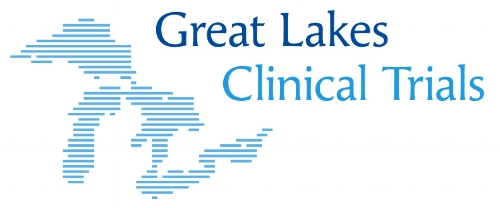GAP-Net site Great Lakes Clinical Trials in Chicago was featured in the Chicago Sun Times, where they discussed the difficulties of attracting Alzheimer’s disease trial participants during COVID-19.
Jim Butler is receiving his monthly 45-minute infusion of drugs.
What kind of drugs? He doesn’t know. Nor do the nurses administering them. Could be an experimental medicine that will help his brain fight Alzheimer’s disease. Or could be a placebo that does nothing.
Only one doctor conducting the medical research at Great Lakes Clinical Trials knows what drug Butler is getting, and even he doesn’t know what the effect will be.
None of this influences Butler’s determination to be here.
Opinion
“I got an Alzheimer’s diagnosis four years ago,” said Butler, 71, who describes the disease as causing “multiple times a day, cognitive hiccups, confusion.”
One thing he is not confused about is the importance of participating in research.
“The simplest reason is I like to be very proactive about my diagnosis,” he said. “My game plan is not to get overwhelmed and unsettled at these things. To try to smile at them, dismiss them, let them go. A clinical trial is an enormously great way to do that.”
Clinical trials are the minor leagues of medicine. Before drug companies can sign up a star cure to wow the public, they need to know if it can deliver. To do that, they spend billions of dollars and commission hundreds of small clinics like Great Lakes Clinical Trials, which opened in Andersonville in 2014. There is a second location in Arlington Heights.
:no_upscale()/cdn.vox-cdn.com/uploads/chorus_asset/file/20034034/IMG_4786.jpg)
Clinical trials must be run like clockwork, with drugs administered and tests — in between infusions, Butler takes cognitive tests to see how his brain is functioning — done on a set schedule. A certain pandemic has upended Alzheimer’s research along with everything else.
“COVID is substantially impairing our research efforts for two reasons,” said John Dwyer, president of Global Alzheimer’s Platform Foundation based in Washington, D.C. “First, older folks are saying, ‘I’m really worried about Alzheimer’s and want to fight it. I know it can kill me in 10 or 15 years. But COVID can kill me right now.’”
Second, some research partners had to stop participating. Great Lakes had to stop using the MRI at Swedish Covenant, for instance, while the hospital fought COVID. Revenue at Great Lakes is down 50% over the past three months.
“Most of our patients have still continued to come in,” said Steve Satek, president and founder of Great Lakes. “It’s just a little bit slower process, spreading out visits. Not letting patients come in at the same time.”
Arriving at the clinic, I thought Alzheimer’s could only be confirmed after death. But I was behind the times.
“That’s radically changed in the last five years,” said Dr. Jeffrey Ross, lead investigator at Great Lakes. “It used to be we could only detect Alzheimer’s from brain tissue. Now we can see that in the living brain in a PET scan, using special radioactive isotopes. That has helped us to make earlier diagnoses. We see the presence of amyloids” (protein plaques that builds up in the brain due to Alzheimer’s, disrupting its function) 20 years before the onset of symptoms.”
Dwyer said medical research is a collaboration between massive pharmaceutical companies and famous hospitals joined by the need for a steady stream of test patients with small clinical trial sites.
”It’s a wonderful amalgamation of great brand names — Harvard and Washington University and Northwestern, the Mayo Clinic and the Cleveland Clinic, and these committed mom and pop institutions,” he said.
“The discovery process for new therapies, from Alzheimer’s to cancer, is largely done on the backs of little enterprises they hire to conduct the trials. Billion dollar companies rely on primary care physicians to organize and enroll and monitor the care of patients in trials to see whether therapies work or not. It’s a little understood and highly critical part of finding solutions to disease.”
Before the effects of Alzheimer’s drugs on the brains of Alzheimer’s patients can be studied, those patients have to come through the door.
“You can’t just take anybody,” Dwyer said. “To get a pristine, rigorous collection of people who will give you a clear signal the drug is working, you have to screen a lot of people. This is not a trivial commitment. You’re signing up for a one-year run, most are longer. Every month, like clockwork, you gotta go back to Great Lakes for another drug in your veins. Rain, sleet, snow.”
Or pandemic coupled with recession and civil unrest.
“A number of high-profile studies were canceled,” Ross said. “COVID put us on hold for starting new studies. But once this thing subsides, we’re going to hit the ground running.”
Dwyer wishes clinical trial volunteers could be nudged into the ever-expanding hero class.
“The first responders — the cops, the firemen, doctors, nurses — we celebrate all these people,” he said. “But first responders come in many forms. These people who participate in trials, they are first responders, too.
“If we don’t get them into studies, we don’t have therapies for cystic fibrosis, sickle cell anemia, cancer, Alzheimer’s. We’re dealing with older people, the most vulnerable population for COVID, asking them to get into trials, disrupt their lives. Not just for themselves but to possibly find a solution to terrible, terrible diseases.”
That’s what keeps Jim Butler coming back, despite the masks and the elaborate cleaning precautions now being taken.
“I’d hate to have to interrupt it,” he said.
Why?
“This is yet one more way to be positive and on top of my diagnosis,” he said. “I could be helping myself if this proves to be a real home run; then great, I got lucky. I want to get lucky. I also want to contribute.”
Those interested in participating can contact Great Lakes Clinical Trials at (773) 275-3500 or go to greatlakesclinicaltrials.com.
Originally posted by the Chicago Sun Times on June 14, 2020.
